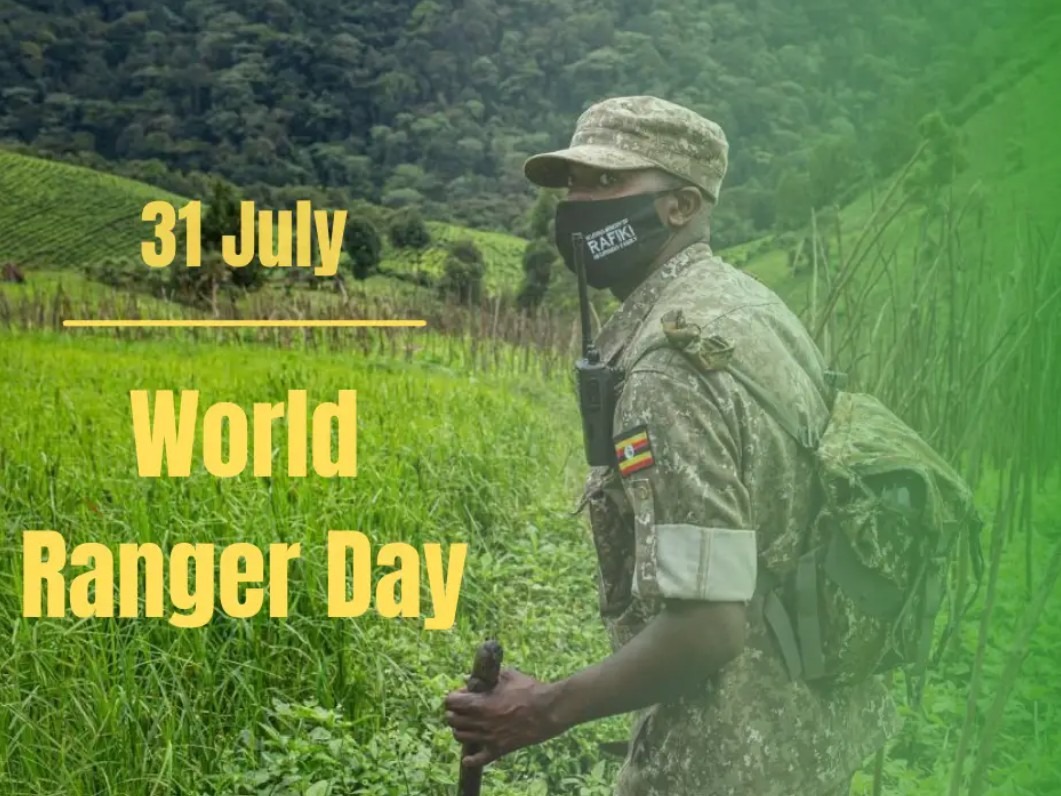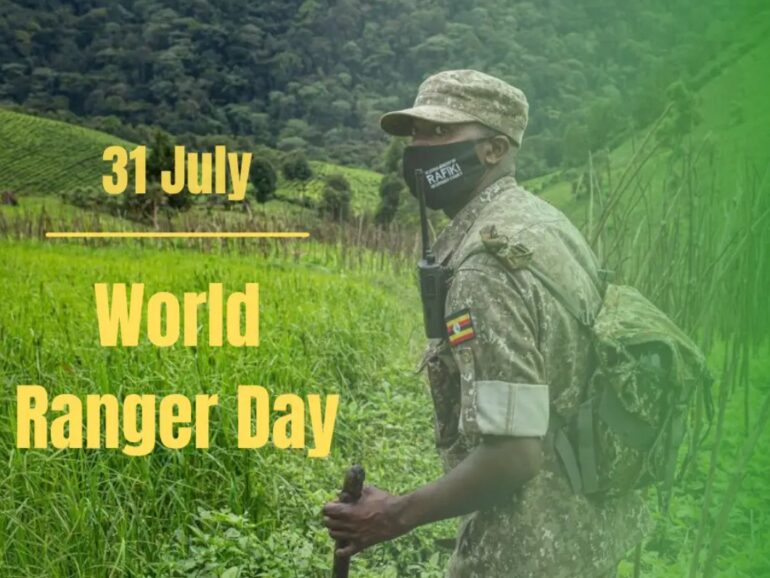Contact Us

Office: 083 000 1000
Studio: 083 00 00 967
Telegram: 083 00 00 967
WhatsApp: 083 00 00 967
Telegram: 083 00 00 967
WhatsApp: 083 00 00 967
Location: Unit 42 & 44, Hyper Motor City, Maxwell Street, Windhoek, Namibia
Listeners:
Top listeners:
Radiowave 96.7FM
 play_arrow
play_arrow
Actor and Idol: Dating Done Right Lunch w/ Yanika


Windhoek, 31 July 2025
Today marks World Ranger Day 2025, celebrated under the theme “Rangers, Powering Transformative Conservation.” This annual initiative honours the critical work of rangers worldwide and commemorates those rangers who suffered in the line of duty. Across Africa, nearly 60,000 rangers dedicate themselves to protecting wildlife and wild spaces, sometimes putting their lives on the line. Wildlife conservation NGO, Wild Africa has connected with rangers across the continent to share their personal stories from the field and highlight the courage and sacrifices required for this demanding profession.
Africa is grappling with a significant conservation crisis driven by rapid human population growth, and the expansion of urban developments, poaching and other wildlife crimes, climate change and deforestation. These pressures are leading to habitat loss and a decline in countless species. Rangers are at the forefront of addressing these challenges, working to secure protected areas so that ecosystems can function effectively for the benefit of both wildlife and people. The role of a ranger extends well beyond wildlife protection as they also provide environmental education, act as first responders, engage in law enforcement, manage fires and conduct community outreach.
Globally, there are an estimated 280,000 rangers carrying out these diverse and essential tasks, but this number falls far short of what is needed to meet global conservation targets. To protect 30% of the planet by 2030, approximately 1.5 million rangers will be required. Yet, despite the urgency, ranger numbers are declining, and the work remains highly dangerous. Between 2006 and 2021, 2,351 rangers died while on duty globally, with nearly half (42.2%) of these fatalities resulting from criminal activity, often linked to wildlife crime and organised poaching operations. Other challenges that rangers face include time away from their families, long hours of solitude, traumatic confrontations with poachers and being ostracised by
their communities following arrests.
Wildlife rangers are passionate individuals, with unique stories of why they pursued this dangerous career, and why they are so dedicated to their work in preserving Africa’s wildlife. Natasha Gomes, Rhino Ranger at Hûab Conservancy says, “I became a ranger to play a very important role in our community to protect wildlife for future generations. My interest is to sensitise my community about nature conservation. What I love most about being a ranger is that I have become an ambassador in our conservancy, whereby I am sharing my knowledge with my community, and I play an important role in managing and preserving our conservancy. I am a steward of nature. Information sharing is most important. We ask the community and the public to engage in conservation efforts, share information on illegal activities with rhino rangers, and acknowledge the value of our rare, endangered species.” Lorna Dax, Programme & Partnership Development Assistant at Save the Rhino Trust, says, “I have seen the benefits of conservation within the local communities where employment opportunities are very rare. World Ranger Day is meaningful to me because it gives us the opportunity as communities, as support NGOs, and as Save the Rhino Trust to show appreciation to our rangers and also to remember those who have passed on and are no longer with us. My message to the community is to continue being the eyes and ears on the ground for us, and also to know that collaboration is very important in conservation — conservation is not a one-man show. Together we can conserve and protect our biodiversity and our rhinos.”
Immanuel Johannes, junior tracker from N/a’an ku sê Foundation, says, “…the animals share a lot of [things] which we have in common [with them]. Please, let’s take care of our animals; let’s make sure we take care of our nature, because our younger generation needs to grow and also needs to see what the animals look like that we have protected.”” Heiki Haukongo, ranger at N/a’an ku sê Foundation, says, “Being a ranger gives me a chance to combine my love for nature with my desire to protect it. Being a ranger is more than just a job for me — it is a calling to ensure that these beautiful species remain accessible for future generations. It gives me an opportunity to connect with people, with nature, and with history, while contributing to the preservation of vulnerable species. It is not an easy job; you have to spend a lot of time away from your family. World Ranger Day is important because it gives honour to the courageous men and women who dedicate their
lives to protect our beautiful species.” On World Ranger Day, and every day, we pay tribute to the bravery, resilience, and dedication of rangers who protect not only endangered species and fragile ecosystems, but also Africa’s natural heritage that
sustains us all. Let’s reaffirm our commitment to stand alongside them, providing the resources, recognition, and support they need to continue this vital work for generations to come.
Media contact: Odile Gertze, Namibia Representative for Wild Africa, email: odile@wildafrica.org; contact
number: +264818095108
Wild Africa aims to be Africa’s most effective conservation communicator, inspiring the public support and political will to protect Africa’s wildlife and wild spaces forever. We believe people and wildlife can only survive and thrive together, so we are popularising conservation with a much broader audience than has previously been engaged. By amplifying the voices of African opinion leaders from every field through a powerful network of media partners and diverse programming, we seek to promote domestic wildlife tourism, local conservation projects and the passage and effective enforcement of conservation laws. Through our communications and direct support, we also aim to deliver permanent reductions in wildlife
crime, the demand for illegal bushmeat, human-wildlife conflict and habitat loss. Our network includes more than 25 national and international broadcasters, as well as radio, newspaper, billboard, PR and social media companies, who work with us pro bono to add their voices and promote conservation and environmental issues. We partner with 199+ ambassadors from music, sports, film, TV, business, religion and government from Nigeria, Zimbabwe, South Africa, Rwanda, Ghana, Namibia, and Somaliland.
Written by: Anne Mans

COPYRIGHT 2025 Radiowave 96.7FM | WEBSITE BY DIGITAL PLATFORMS